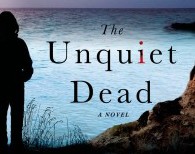By Carol Memmott – The Washington Post
Inspector Esa Khattak , a Canadian Muslim, is kneeling on a prayer rug woven by his Pakistani ancestors when his phone rings. He takes the call, finishes his prayers and sets off to investigate the suspicious death of a man who may be a fugitive war criminal.
“The Unquiet Dead,” Ausma Zehanat Khan’s impressive first novel, introduces us to Canada’s Community Policing Section, which handles the country’s minority-sensitive crimes. What was first considered an accidental death — a simple case of a man falling off a cliff — becomes a highly sensitive investigation when a war-crimes historian suspects that the victim, Christopher Drayton, is really Drazen Krstic, the driving force behind the Srebrenica massacre of 1995. That slaughter, Khan writes, is considered to be “Europe’s greatest atrocity since the Second World War.”
She carefully and solemnly details Bosnia’s tragic history even as she describes the rape and torture camps, the mass executions of adults and children and the annihilation of culture and families by ultranationalists who wanted to wipe out the country’s non-Serb and non-Croat inhabitants.
She carefully and solemnly details Bosnia’s tragic history even as she describes the rape and torture camps, the mass executions of adults and children and the annihilation of culture and families by ultranationalists who wanted to wipe out the country’s non-Serb and non-Croat inhabitants.
 العربي الديمقراطي The Latest From The Arab World
العربي الديمقراطي The Latest From The Arab World






